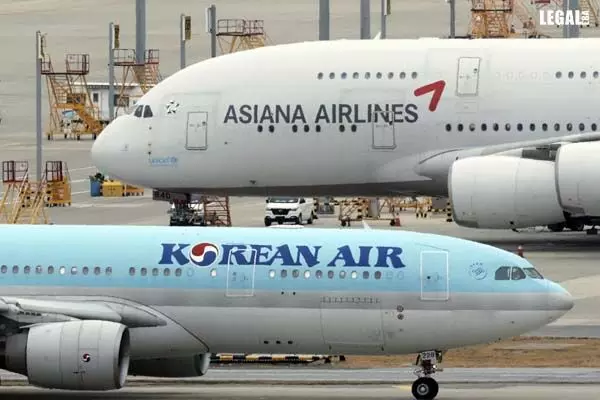- Home
- News
- Articles+
- Aerospace
- Artificial Intelligence
- Agriculture
- Alternate Dispute Resolution
- Arbitration & Mediation
- Banking and Finance
- Bankruptcy
- Book Review
- Bribery & Corruption
- Commercial Litigation
- Competition Law
- Conference Reports
- Consumer Products
- Contract
- Corporate Governance
- Corporate Law
- Covid-19
- Cryptocurrency
- Cybersecurity
- Data Protection
- Defence
- Digital Economy
- E-commerce
- Employment Law
- Energy and Natural Resources
- Entertainment and Sports Law
- Environmental Law
- Environmental, Social, and Governance
- Foreign Direct Investment
- Food and Beverage
- Gaming
- Health Care
- IBC Diaries
- In Focus
- Inclusion & Diversity
- Insurance Law
- Intellectual Property
- International Law
- IP & Tech Era
- Know the Law
- Labour Laws
- Law & Policy and Regulation
- Litigation
- Litigation Funding
- Manufacturing
- Mergers & Acquisitions
- NFTs
- Privacy
- Private Equity
- Project Finance
- Real Estate
- Risk and Compliance
- Student Corner
- Take On Board
- Tax
- Technology Media and Telecom
- Tributes
- Viewpoint
- Zoom In
- Law Firms
- In-House
- Rankings
- E-Magazine
- Legal Era TV
- Events
- Middle East
- Africa
- News
- Articles
- Aerospace
- Artificial Intelligence
- Agriculture
- Alternate Dispute Resolution
- Arbitration & Mediation
- Banking and Finance
- Bankruptcy
- Book Review
- Bribery & Corruption
- Commercial Litigation
- Competition Law
- Conference Reports
- Consumer Products
- Contract
- Corporate Governance
- Corporate Law
- Covid-19
- Cryptocurrency
- Cybersecurity
- Data Protection
- Defence
- Digital Economy
- E-commerce
- Employment Law
- Energy and Natural Resources
- Entertainment and Sports Law
- Environmental Law
- Environmental, Social, and Governance
- Foreign Direct Investment
- Food and Beverage
- Gaming
- Health Care
- IBC Diaries
- In Focus
- Inclusion & Diversity
- Insurance Law
- Intellectual Property
- International Law
- IP & Tech Era
- Know the Law
- Labour Laws
- Law & Policy and Regulation
- Litigation
- Litigation Funding
- Manufacturing
- Mergers & Acquisitions
- NFTs
- Privacy
- Private Equity
- Project Finance
- Real Estate
- Risk and Compliance
- Student Corner
- Take On Board
- Tax
- Technology Media and Telecom
- Tributes
- Viewpoint
- Zoom In
- Law Firms
- In-House
- Rankings
- E-Magazine
- Legal Era TV
- Events
- Middle East
- Africa
South Korean Government Assures Support To Small Airlines After Korean Air-Asiana Merger

South Korean Government Assures Support To Small AirlinesAfter Korean Air-Asiana Merger
Korean Air's acquisition of Asiana Airlines creates one of Asia's largest carriers, with South Korea's government ensuring support for small airlines and monitoring market competition. The merger boosts Incheon International Airport's global position.
Korean Air has concluded its $1.3 billion acquisition of Asiana Airlines, creating one of Asia's largest carriers and strengthening its competitive position globally. The Government of the Republic of South Korea will support smaller airlines and monitor market competitiveness.
Korean Air acquired a 63.88 percent stake in the country's second- largest airline. After a three-year delay, the merger involves integrating Asiana as a subsidiary before full integration under the Korean Air brand.
The enlarged Korean Air group accounts for over half of South Korea's passenger capacity and has become the world's 12th-largest airline by international capacity. It now ranks alongside China's top three state-owned carriers as one of Asia-Pacific's largest by revenue. Recently, South Korea's transport ministry unveiled measures to boost competitiveness in the domestic aviation industry. These included additional medium and long-haul traffic rights for the low- cost carriers.
By March, the Fair Trade Commission (FTC) intends to set up a panel to monitor Korean Air's compliance with conditions attached to the merger's approval. These include a pledge by Korean Air not to let seat numbers fall below 90 percent from 2019 levels on key routes.
Meanwhile, Korean Air said there would be no staff layoffs. "The combined organization projects natural staff growth through business expansion, with employees in overlapping functions being reassigned within the organization.”
The acquisition was hampered by competition concerns. To complete the deal, the airline had to make significant worldwide concessions, including handing routes to other airlines and selling Asiana's cargo operations.
The longest-ever merger was first announced in November 2020 to rescue the debt-laden Asiana, which was grappling with a plunge in demand during the Covid-19 pandemic. Asiana will be run as a subsidiary for up to two years before integrating into one airline that retains the Korean Air name, but with a new branding. The latter will create a single low-cost carrier and its integration strategy includes spreading out flight schedules on overlapping routes, adding new destinations and more safety investments.
In June, a plan to merge the two airlines' frequent flyer programs will be submitted to the FTC for review. The airline stated that the deal would boost the capabilities and network reach of the Incheon International Airport, the world's fourth busiest for international flights and fifth busiest for cargo, competing with Asian hubs Hong Kong and Singapore.
Airline consolidation is rarer in Asia than in Europe, which saw a wave of mergers in the last two decades, and in North America where regulators fear the industry is too concentrated.



